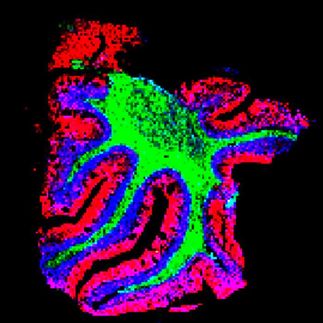Studying bacterial metabolites with mass spectrometry
Advertisement
Organic compounds produced by colonies of bacteria can now be characterised using a mass-spectrometry technique that is both location specific and non-destructive. The method enables the rapid identification of metabolites from specific areas of an agar gel without affecting the viability of the colony.
Nanospray desorption electrospray ionisation (nano-DESI) is coupled to MS/MS and provides excellent sensitivity. The authors of this paper use the technique to study chemical gradients of lipids and metabolites in living colonies of Synechococcus sp. PCC 7002 bacteria, finding several new glycolipids that have not been observed using conventional cell-extraction approaches.
Increased knowledge of how microbial metabolites are produced could lead to the development of new methods for bio-fuel production, drug discovery and clinical research, as well as a better understanding of the dynamic microbial world.
Most read news
Original publication
Organizations
Other news from the department science

Get the life science industry in your inbox
By submitting this form you agree that LUMITOS AG will send you the newsletter(s) selected above by email. Your data will not be passed on to third parties. Your data will be stored and processed in accordance with our data protection regulations. LUMITOS may contact you by email for the purpose of advertising or market and opinion surveys. You can revoke your consent at any time without giving reasons to LUMITOS AG, Ernst-Augustin-Str. 2, 12489 Berlin, Germany or by e-mail at revoke@lumitos.com with effect for the future. In addition, each email contains a link to unsubscribe from the corresponding newsletter.






















































